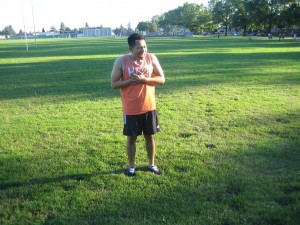The normal heart typically beats at the rate of 60-100 beats in a minute. The heart rate can heighten to 160-180 or more in a minute during vigorous physical activity. Changes in the diet, activity level, medications and age all affect the heart rate. Once heart racing occurs without any reason, it can indicate an abnormality. If you want to learn more about this condition, read here.
Tachycardia
An unusually rapid heart rate that is more than 100 beats per minute is a called as tachycardia. This occurs once there is an issue with the electrical system in the heart which flows from the upper to lower heart chambers and initiates a heartbeat.
Types of tachycardia
Ventricular tachycardia
Ventricular tachycardia starts in the inferior chambers or ventricles of the heart and considered more serious and potentially life-threatening form of tachycardia. An extended ventricular tachycardia can result to a severely rapid and erratic ventricular beat called as ventricular fibrillation. Take note that ventricular fibrillation is the usual cause of cardiac arrest in most cases.

Supraventricular tachycardia
If tachycardia starts in the upper chamber, it is called a supraventricular tachycardia and not usually serious. On the other hand, regular recurrences can cause the heart muscles to weaken over time.
What are the symptoms?
The usual symptoms of tachycardia include chest discomfort, blurry vision as well as shortness of breath, lightheadedness, feeling of faintness or fainting. Any abrupt rapid heartbeat must be assessed by a doctor. Emergency assistance is required if the individual suffers from rapid heartbeat that is accompanied by fainting or chest pain.
Panic or anxiety attack
A heart racing attack can be a symptom of panic or anxiety attacks. Take note that a panic or anxiety attack is an abrupt, overwhelming sense of fear and anxiety. The heart starts to pound and the individual can experience symptoms similar to tachycardia such as chest discomfort, dizziness and shortness of breath.
The panic attacks are typically triggered by a very stressful event such as loss of a job, divorce or a life transition such as a new job or getting married. There are also medical issues such as hyperthyroidism and hypoglycemia that can cause panic attacks. In case panic or anxiety attacks are regular, a doctor should be consulted to rule out any physical cause and start the appropriate course of treatment for the anxiety.
Treatment
In case panic or anxiety is not the cause of the heart racing attack, a doctor should be consulted to help identify the type of tachycardia and the possible treatment option. The doctor will perform an electrocardiogram which is a recording of the heart rhythm. When it comes to supraventricular tachycardia, it can be treated with medications or catheter ablation. If catheter ablation is used, it is usually combined with an implanted cardioverter defibrillator.
